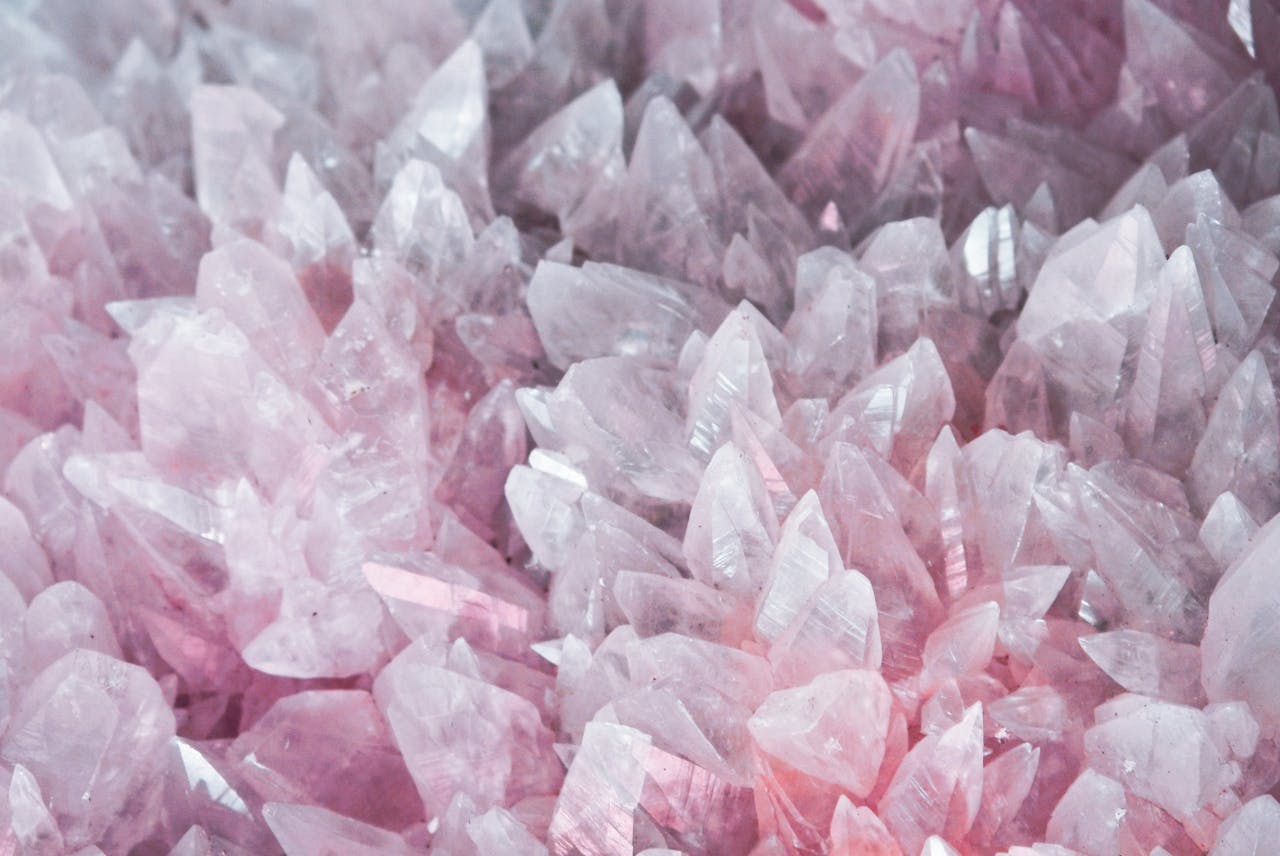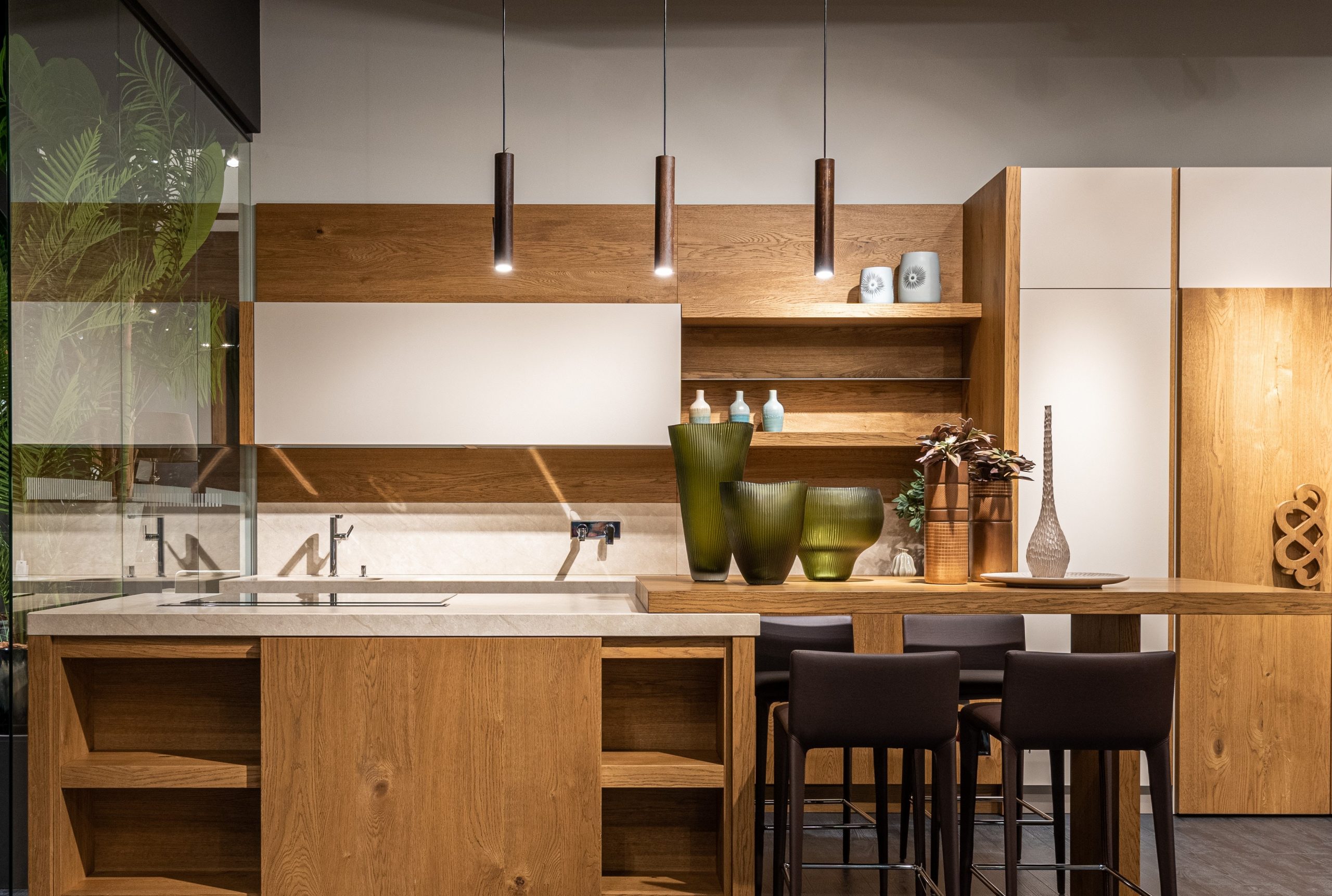What is Quartz?

Quartz is one of the most abundant minerals on earth. Naturally, quartz doesn't occur solely on its own, but along with other minerals. For instance, granite is one kind of stone that is of several minerals, largely quartz as well as feldspar.
In the context of countertop manufacture, Quartz countertops do not refer to blocks of solid quartz mineral, but an engineered mix of the 93% quartz mineral, synthetic polymer, and various other additives such as color binders. It isn't quarried out of the earth and cut into slabs like natural stone, which means it can be fabricated into more specific shapes and sizes.
Combining The Best Materials To Create The Perfect Kitchen Countertops

Quartz countertops are engineered to meet the special needs of kitchens and home use. The key components are Quartz mineral, a very hard mineral rated at 7 on the Mohs hardness scale, and resin.
By mixing it with resin and then “baking” it under heat and pressure, the quartz minerals bind together. It is the resin binder that makes the engineered Quartz non-porous.
It does this by filling in the gaps in between the minerals, which will otherwise allow liquids and other small particles to seep between them. These gaps can also harbor germs and bacteria, which can pose a hygiene hazard.
Some suppliers promote their products as “natural quartz”; well, yes, it's organic. Keep in mind that its organic quartz that's integrated with other materials that make up those “all-natural quartz” kitchen counters.
Not To Be Confused As Being Less Durable Than Natural Stone
Synthetic doesn't mean that quartz countertops are lesser products compared to natural stone. On the contrary, engineered Quartz is designed to be more durable (in a kitchen context), hygienic and attractive. These are all amazing characteristics for any sort of countertop surface.
Its non-porosity also means that you do not have to worry about bacteria and other unfavorable vermin setting up residence on your countertop. And then there's the matter of aesthetic preferences – quartz countertops come in colors and patterns that have a much more consistent appearance than some natural stones.
With quartz counters you can be sure of getting a regular color pattern throughout.
 Credit: Mexo Inc
Credit: Mexo Inc
Advantage & Disadvantages Of Quartz Countertops
Okay, so we have established that quartz counters are not inferior products. But nothing is perfect, and these countertops come with their share of advantages and disadvantages.
Advantages of Quartz Countertops :
1. Non-Porous. Being non-porous is probably one of the best features you can have for a kitchen top. Hygiene is a big concern when you're dealing with food, and a porous surface will start to harbor dangerous microorganisms, including bacteria, fungi, and molds.
It's also less most likely to stain because there are no gaps for the stains to get into. This doesn't mean, however, that you can leave, say, a tomato ketchup stain on it indefinitely – sooner or later its weak acid is going to etch a mark, or its pigments dry and stick fast. Plus the mess can become a haven for microorganisms to fester.
2. No Recurring Upkeep Required. Again we see another benefit of being non-porous – quartz countertops do not need sealing like a natural stone counter. Not having to reseal your countertops every two years or so makes it more hassle-free. There's no chance that you'd forget to perform resealing, either, which is perfect if you're absent-minded like me.
3. Uniformity In Color scheme. Quartz countertops can boast a better color consistency look than some natural stones. When you purchase a slab of granite or soapstone chances are there could be large variants in the color pattern.
This is especially problematic if you'd not had the chance to preview the slab prior to purchase. With quartz countertops, we guarantee that the countertop you receive will sport a regular color scheme throughout.
4. No Health Issues. Numerous brand names of quartz countertops receive NSF certification. This means that they will not harbor unsafe microorganisms. Quartz counters are also non-radioactive, unlike granite which sometimes radiates radon.
5. A Wide Palette of Shades to Choose from. Engineered countertops come in a variety of colors and shades that you will not otherwise find in natural stone. So if you'd like a crystalline look but would like it in bright red or deep blue, it's readily available. Natural stone's colors, however, are set in stone. No pun intended.
6. Gorgeous. Last but not least, quartz countertops are as lovely as they get. It can be finished with the raw, honed look or the glossy, soft satin of polished rock.
Disadvantages of Quartz Countertops :
1. Can be Susceptible to Damage. Quartz is a tough product but that doesn't mean it can't break. While designed to take the wear of everyday use, a hard knock or impact can still break or chip it.
2. Can be damaged by high heat. Although quartz mineral itself has an extremely high temperature, the resin in its composition is very susceptible to heat damage. It is therefore a really bad idea to put a hot pot or pan directly onto a quartz countertop. Always place trivets and potholders in between the quartz countertop and hot objects. Always.
3. Not Seamless. Quartz slab makers make their items in uniform dimensions, generally about 4.5 feet broad by 10 feet long. This means that you have to join several slabs to complete larger countertop styles, resulting in visible seams where the pieces come together.
4. Sensitive To harsh cleaners. Quartz countertops can also be damaged when exposed directly to chemicals with too high or low pH (i.e. highly alkaline or acidic). These include corrosion removers, aluminum lightening compounds, sturdy cleaners, and bleach. Always pay attention to the manufacturer's cautionary notes.
5. Not Scratch Proof. Again, the resin of quartz countertops is susceptible to scratching. Avoid cutting directly on its surface with sharp knives, or placing hard-edged objects on it.
Always do your cutting on a cutting board, or take your cutting elsewhere. If you like Quartz, you might want to know how they are doing against other stones too, Here are a few VS posts that might help you decide.







